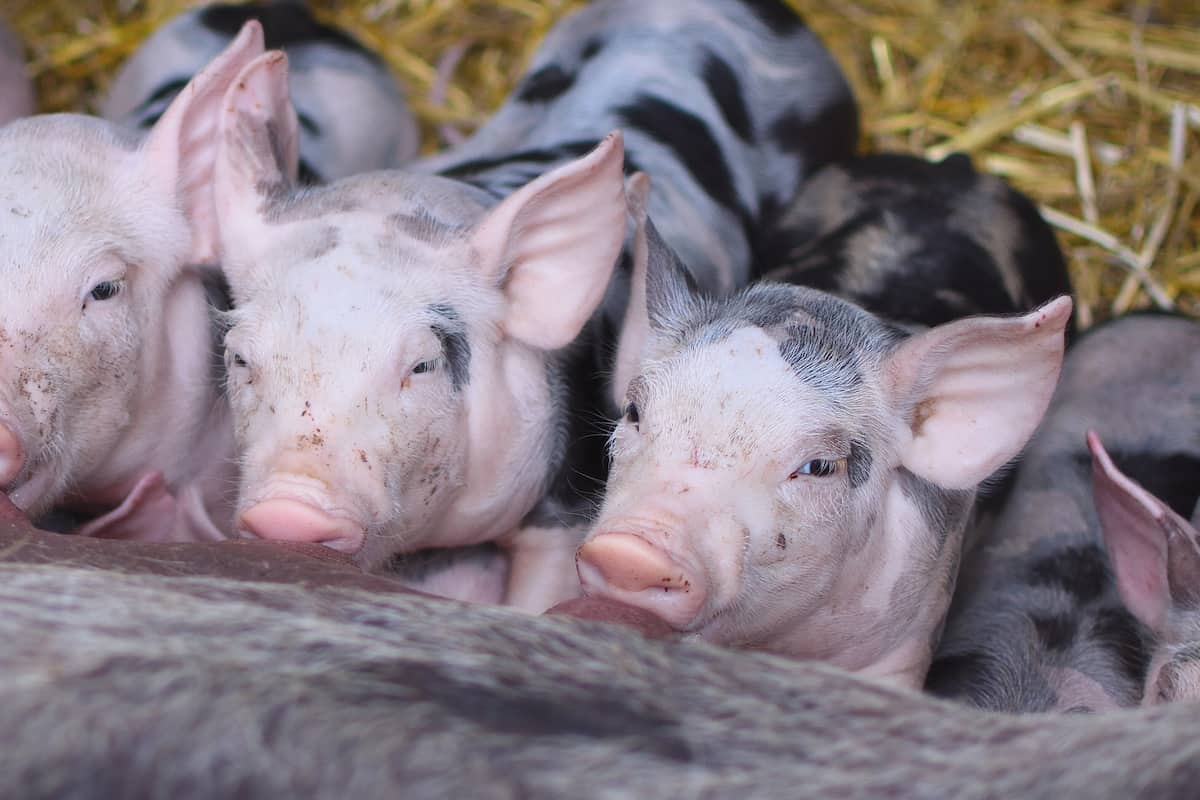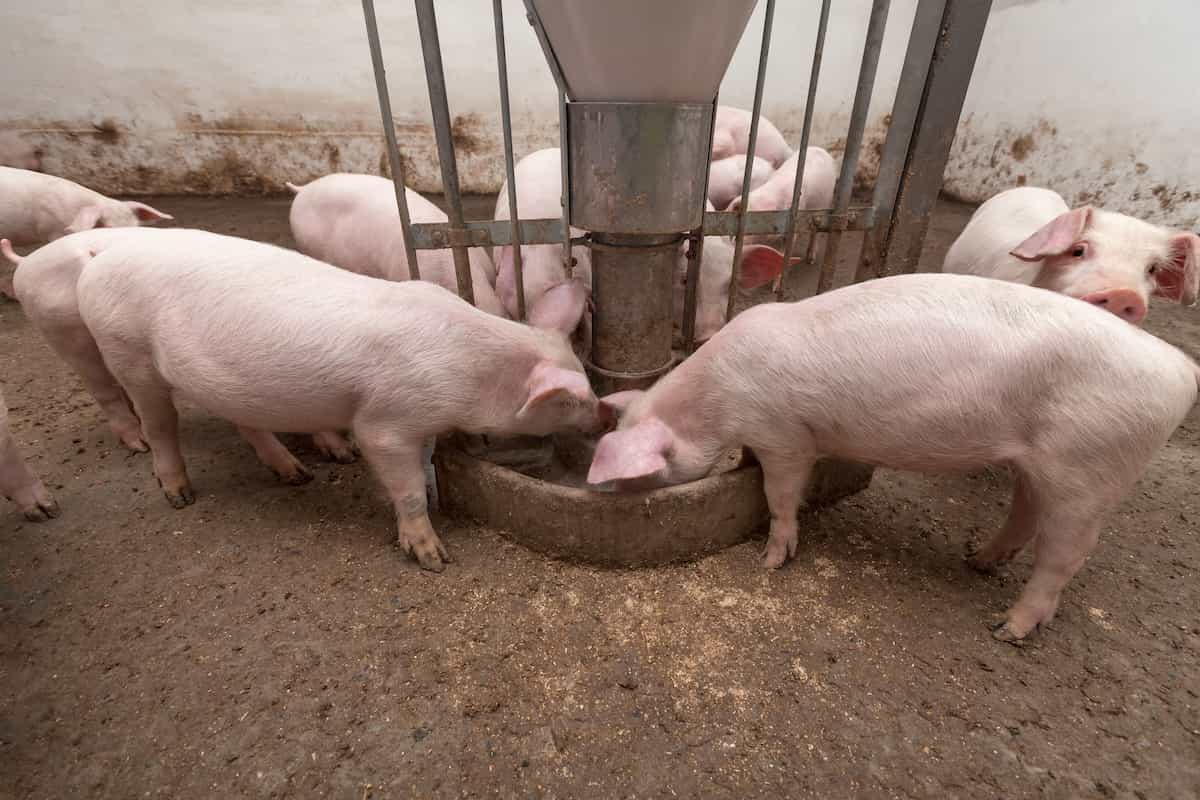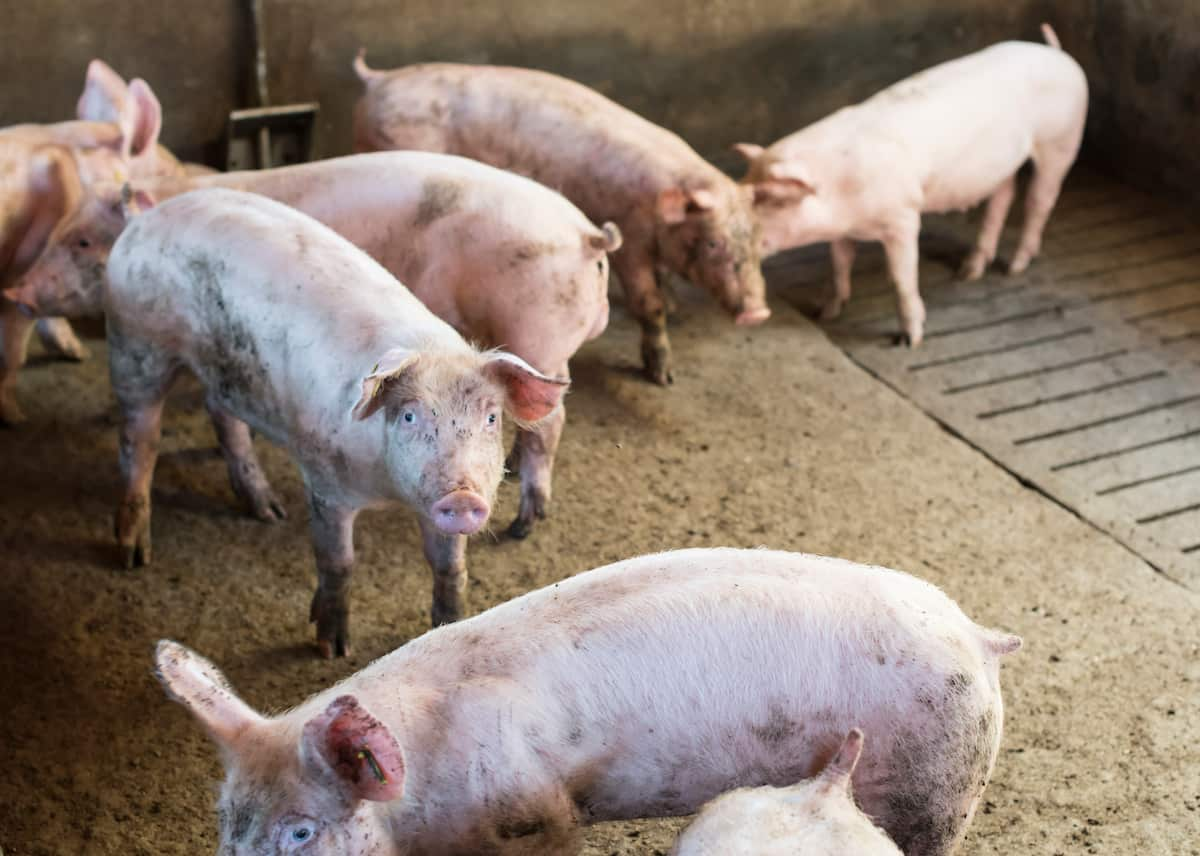Organic pig farming has gained significant popularity in recent years as more consumers seek ethically produced, healthy, and high-quality pork products. Below we learn about starting an organic pig farm at home for beginners, covering all aspects of the process, from selecting the right breed to managing waste effectively, pig farming business plan, and small-scale pig farming.

Guide to Start an Organic Pig Farming at Home
Planning and Legal Requirements
Before diving into pig farming, it’s crucial to check local zoning laws and regulations to ensure you’re allowed to keep pigs on your property. Additionally, contact your local agricultural extension office to obtain information on any permits, licenses, or certifications required for organic pig farming. Adequate planning will also involve researching the organic certification process and associated costs, as this will be necessary to market your products as organic.
Breed Selection
Choosing the right pig breed is critical for the success of your organic pig farm. Some popular breeds for organic farming include Large Black, Gloucestershire Old Spot, and Tamworth. These breeds are known for their ability to forage and thrive on pasture, an essential element of organic farming. Research the characteristics of different breeds, such as size, growth rate, and temperament, to determine the best fit for your farm.
Housing and Infrastructure
Pigs require a clean, dry, and well-ventilated shelter to protect them from weather elements and maintain good health. Design housing that meets the specific needs of your chosen breed, providing adequate space for them to move around and express natural behaviors. Ensure there is access to clean water and shade. Additionally, plan for a well-fenced area for pigs to roam and forage, ensuring the fence is strong and secure to prevent escapes.
Pasture Management and Rotation
Create a pasture rotation scheme to improve the pigs’ health and well-being. Regular rotation of pigs through different pastures helps prevent overgrazing, soil compaction, and disease. Planting a diverse mix of forage crops, such as grasses, legumes, and root vegetables, can provide essential nutrients for the pigs and maintain soil fertility. Regular soil testing is also necessary to ensure optimal pasture health.
Organic Feed and Nutrition
In organic pig farming, pigs must be fed organic feed free of antibiotics, hormones, and synthetic additives. Source high-quality organic feed from a reputable supplier or consider growing your feed on the farm. In addition to pasture forage, provide a balanced diet that meets the nutritional requirements of your pigs, including protein, carbohydrates, vitamins, and minerals. Regularly consult a veterinarian or animal nutritionist to optimize your pigs’ diet.
Health and Welfare Management
Organic pig farming prioritizes animal welfare and the use of natural remedies for disease prevention and treatment. Keep a close eye on your pigs and treat any problems right away if you see any symptoms of the disease. Vaccinations may be necessary to protect against certain diseases, and you should consult with a veterinarian for guidance. Implementing biosecurity measures, such as quarantine protocols for new pigs and regular cleaning of housing and equipment, can help prevent disease outbreaks.
Breeding and Genetic Management
Invest in high-quality breeding stock with desirable traits if you plan to breed pigs on your farm. Maintain accurate records of breeding and genetics to track lineage and make informed breeding decisions. Develop a breeding plan that considers factors such as the age of maturity, gestation period, and farrowing interval. Ensure proper care for pregnant sows and piglets, including adequate nutrition, housing, and medical attention.
In case you missed it: Pig Farming in Kenya: Business Plan, Requirements, and Management

Waste Management
Effective waste management is crucial in maintaining a clean and healthy environment for your pigs and preventing pollution. Develop a waste management plan that includes regular cleaning of housing and pastures and proper disposal or composting of manure. Composted manure can be a valuable source of organic fertilizer for your pastures or other crops on your farm. Additionally, consider implementing a system to capture and treat wastewater from your pig farm to minimize environmental impact.
Monitoring Growth and Performance
Track the growth and performance of your pigs to ensure they are meeting their developmental milestones and identifying any potential health or nutritional issues. Regularly weigh your pigs and compare their growth rates to breed-specific standards. Make adjustments to their diet or management practices as needed to optimize their growth and overall health.
Preparing for Weather Extremes
Protect your pigs from extreme weather conditions, such as heat, cold, or heavy rain, to maintain their health and comfort. In hot weather, they provide access to shade, cool water, and even misting systems to help regulate their body temperature. During cold weather, ensure their housing is well-insulated and draft-free, and provide extra bedding materials for warmth. Prepare for potential natural disasters, such as floods or storms, by developing an emergency plan and ensuring you have the necessary resources to keep your pigs safe.
Transporting Pigs
When transporting pigs for sale, breeding, or other purposes, it’s essential to minimize stress and ensure their safety and well-being. Use well-ventilated, secure, and comfortable transport vehicles designed for pigs. Plan your route to avoid unnecessary delays or rough terrain, and provide access to water and, if necessary, feed during the journey.
Marketing and Sales
Develop a marketing strategy to promote your organic pig products to potential customers. Focus on the unique selling points of your products, such as the organic certification, humane animal husbandry practices, and superior taste and quality. Identify your target markets, such as local restaurants, farmers’ markets, specialty food stores, or direct-to-consumer sales through a farm store or online platform. Create a strong brand identity and use various marketing channels, such as social media, to reach your audience.
Record Keeping and Financial Management
Accurate record-keeping is essential for the success and sustainability of your organic pig farm. Keep detailed records of your farm operations, including breeding, health, feed, and pasture management. Additionally, maintain financial records to track income, expenses, and profitability. Regularly review and analyze your records to identify areas for improvement and make informed decisions on-farm management practices.
In case you missed it: Poland China Pig Facts: Origin, Size, Physical Characteristics, Pros, and Cons

Conclusion
Starting an organic pig farm at home requires careful planning, dedication, and a commitment to sustainable and ethical farming practices. Following this guide and seeking ongoing education and support, you can successfully establish a profitable and rewarding organic pig farming venture.
- Feed Your Flock for Less: Top 10 Tips to Save on Chicken Feed
- Ultimate Guide to Ossabaw Island Hog: Breeding, Raising, Diet, and Care
- Hatching Answers: The Top 10 Reasons Your Chickens Aren’t Laying Eggs
- Eggs and Economics: Breaking Down the Cost of Raising Backyard Chickens
- Defend Your Greens: Proven Methods to Keep Iguanas Out of Your Garden
- Ultimate Guide to Cinnamon Queen Chicken: A Comprehensive Guide for Beginners
- Ultimate Guide to California Tan Chicken: Breeding, Raising, Diet, Egg-Production and Care
- Ultimate Guide to Marsh Daisy Chicken: Breeding, Raising, Diet, and Care
- 10 Types of Chicken Farming Businesses You Can Start for Profits